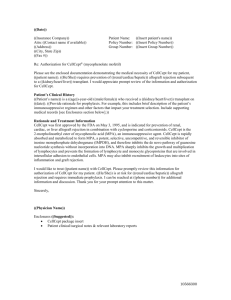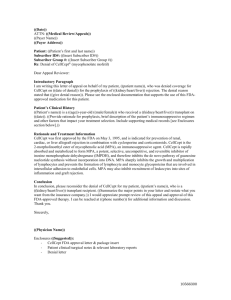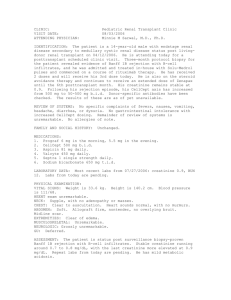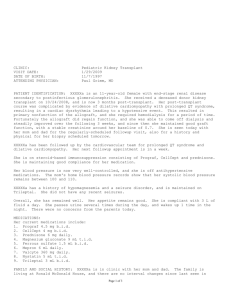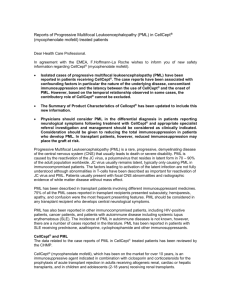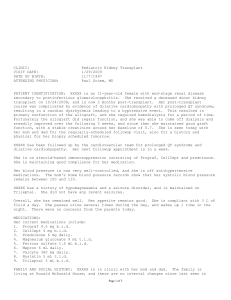Cellcept
advertisement
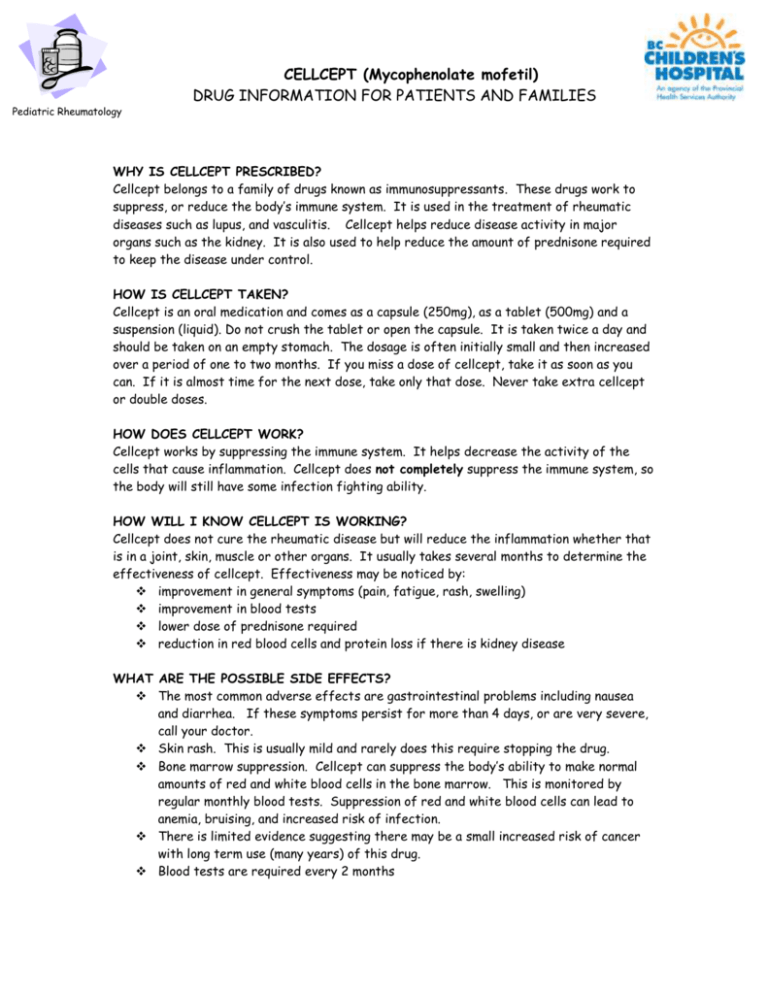
Pediatric Rheumatology CELLCEPT (Mycophenolate mofetil) DRUG INFORMATION FOR PATIENTS AND FAMILIES WHY IS CELLCEPT PRESCRIBED? Cellcept belongs to a family of drugs known as immunosuppressants. These drugs work to suppress, or reduce the body’s immune system. It is used in the treatment of rheumatic diseases such as lupus, and vasculitis. Cellcept helps reduce disease activity in major organs such as the kidney. It is also used to help reduce the amount of prednisone required to keep the disease under control. HOW IS CELLCEPT TAKEN? Cellcept is an oral medication and comes as a capsule (250mg), as a tablet (500mg) and a suspension (liquid). Do not crush the tablet or open the capsule. It is taken twice a day and should be taken on an empty stomach. The dosage is often initially small and then increased over a period of one to two months. If you miss a dose of cellcept, take it as soon as you can. If it is almost time for the next dose, take only that dose. Never take extra cellcept or double doses. HOW DOES CELLCEPT WORK? Cellcept works by suppressing the immune system. It helps decrease the activity of the cells that cause inflammation. Cellcept does not completely suppress the immune system, so the body will still have some infection fighting ability. HOW WILL I KNOW CELLCEPT IS WORKING? Cellcept does not cure the rheumatic disease but will reduce the inflammation whether that is in a joint, skin, muscle or other organs. It usually takes several months to determine the effectiveness of cellcept. Effectiveness may be noticed by: improvement in general symptoms (pain, fatigue, rash, swelling) improvement in blood tests lower dose of prednisone required reduction in red blood cells and protein loss if there is kidney disease WHAT ARE THE POSSIBLE SIDE EFFECTS? The most common adverse effects are gastrointestinal problems including nausea and diarrhea. If these symptoms persist for more than 4 days, or are very severe, call your doctor. Skin rash. This is usually mild and rarely does this require stopping the drug. Bone marrow suppression. Cellcept can suppress the body’s ability to make normal amounts of red and white blood cells in the bone marrow. This is monitored by regular monthly blood tests. Suppression of red and white blood cells can lead to anemia, bruising, and increased risk of infection. There is limited evidence suggesting there may be a small increased risk of cancer with long term use (many years) of this drug. Blood tests are required every 2 months WHAT PRECAUTIONS NEED TO BE TAKEN? Tell your doctor or pharmacist about any other medications you are taking, both prescription and non-prescription. Pregnancy must be avoided while taking this drug as it can damage the fetus. Cellcept may make vaccinations less effective. Discuss with the nurse or doctor before taking any live vaccines. If you develop the chicken pox while taking Cellcept you can become very sick. If you come into direct contact with someone with chicken pox (and you have never had the chicken pox or varicella vaccine) you should receive Varicella Immune Globulin (VZIG) within 72 hours of contact. Contact your family doctor. If your doctor is not available go to your local emergency. If you actually get the chicken pox, contact your doctor. You may need an anti-viral medication to lessen the severity of the symptoms. If you develop any side effects or any other problems, and you are not sure if they are related to the drug, contact your doctor or clinic nurse. For any concerns or questions, contact Rheumatology nurse If urgent call rheumatologist on call@ 604-875-2161 Revised November 2012
